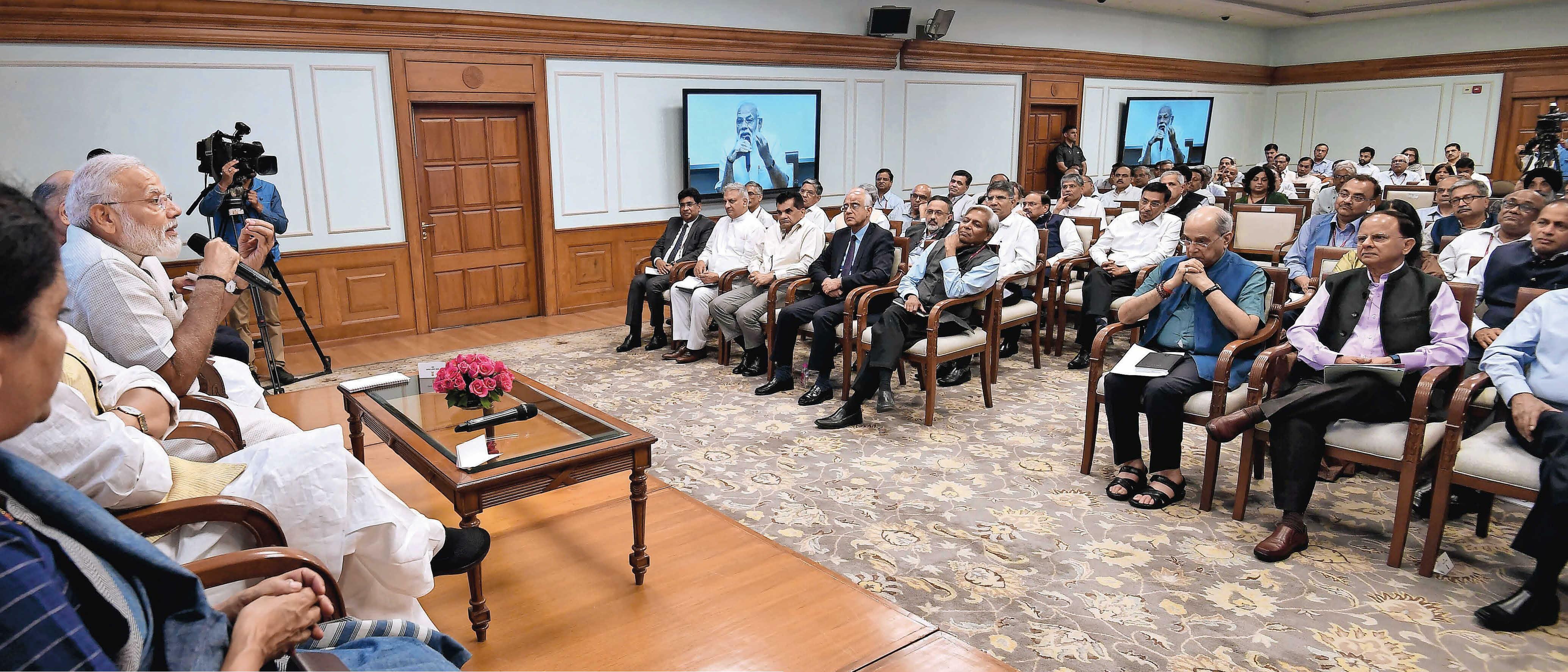
While serving as chief minister of Gujarat, Narendra Modi was annoyed when some of his aides complained about a senior bureaucrat’s incompetence and character flaws. Asking them why the concerns were not flagged earlier, he said promotion committee meetings had no meaning if all officers were automatically promoted. Such thoughts perhaps triggered the ongoing remodelling of India’s bureaucratic steel frame.
The most striking feature of the remodelling is the new 360-degree appraisal, which determines the selection of joint secretaries and higher officers at the Centre. This first big change has shaken up a privileged section in the bureaucracy in Lutyens Delhi.
But how did the cosy club come into being? According to Rajiv Mehrishi, a 1978-batch IAS officer who served as finance secretary, home secretary and comptroller and auditor general of India, it was the product of the country’s socialist system. He said: “Accepted first as a policy and then as a constitutional obligation, avowedly for the benefit of the poor, it, in fact, created an elite whose vested interest was to keep talking about the poor and keep benefiting from a system that gave them a privileged existence and a superior social status.”
It created a situation where the levers of power were wielded by an elite club of English speakers, as divorced from real India as any Indian could be. “We have had generations of bureaucrats, judges, doctors and lawyers, almost as if obtaining positions by inheritance had not been discontinued,” said Mehrishi.
この記事は THE WEEK India の January 08, 2023 版に掲載されています。
7 日間の Magzter GOLD 無料トライアルを開始して、何千もの厳選されたプレミアム ストーリー、9,000 以上の雑誌や新聞にアクセスしてください。
すでに購読者です ? サインイン
この記事は THE WEEK India の January 08, 2023 版に掲載されています。
7 日間の Magzter GOLD 無料トライアルを開始して、何千もの厳選されたプレミアム ストーリー、9,000 以上の雑誌や新聞にアクセスしてください。
すでに購読者です? サインイン

William Dalrymple goes further back
Indian readers have long known William Dalrymple as the chronicler nonpareil of India in the early years of the British raj. His latest book, The Golden Road, is a striking departure, since it takes him to a period from about the third century BC to the 12th-13th centuries CE.

The bleat from the street
What with all the apps delivering straight to one’s doorstep, the supermarkets, the food halls and even the occasional (super-expensive) pop-up thela (cart) offering the woke from field-to-fork option, the good old veggie-market/mandi has fallen off my regular beat.

Courage and conviction
Justice A.M. Ahmadi's biography by his granddaughter brings out behind-the-scenes tension in the Supreme Court as it dealt with the Babri Masjid demolition case

EPIC ENTERPRISE
Gowri Ramnarayan's translation of Ponniyin Selvan brings a fresh perspective to her grandfather's magnum opus

Upgrade your jeans
If you don’t live in the top four-five northern states of India, winter means little else than a pair of jeans. I live in Mumbai, where only mad people wear jeans throughout the year. High temperatures and extreme levels of humidity ensure we go to work in mulmul salwars, cotton pants, or, if you are lucky like me, wear shorts every day.

Garden by the sea
When Kozhikode beach became a fertile ground for ideas with Manorama Hortus

RECRUITERS SPEAK
Industry requirements and selection criteria of management graduates

MORAL COMPASS
The need to infuse ethics into India's MBA landscape

B-SCHOOLS SHOULD UNDERSTAND THAT INDIAN ECONOMY IS GOING TO WITNESS A TREMENDOUS GROWTH
INTERVIEW - Prof DEBASHIS CHATTERJEE, director, Indian Institute of Management, Kozhikode

COURSE CORRECTION
India's best b-schools are navigating tumultuous times. Hurdles include lower salaries offered to their graduates and students misusing AI